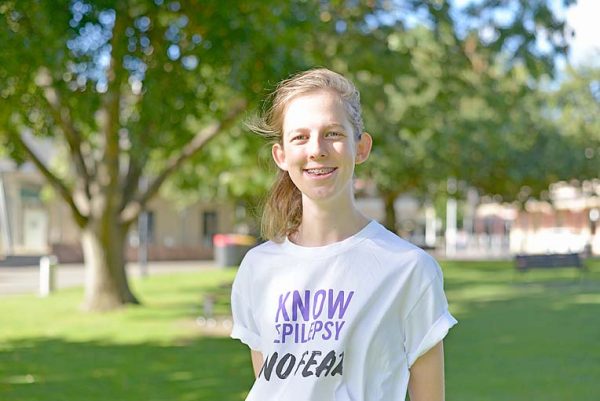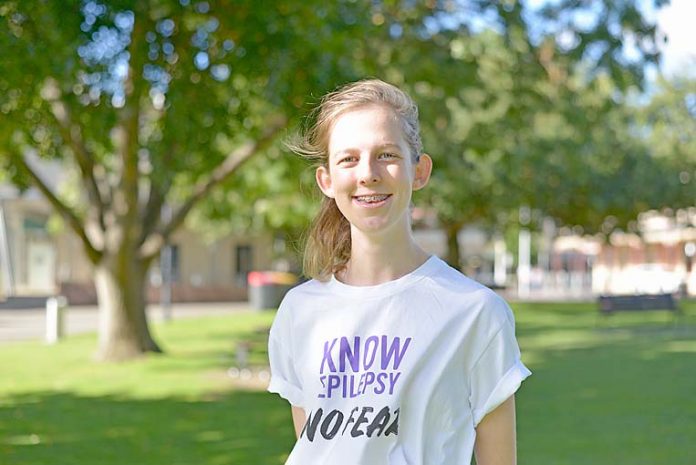
“KNOW epilepsy, no fear” is the message 18-year-old Lily Coote will be sharing this month as she raises awareness of the disorder which has threatened to bring down her positivity and break her bright smile over the last three years.
Thrust into a whirlwind experience at the mere age of 15 after experiencing a tonic clonic seizure, the Year 12 student is an inspiration, taking her many absent seizures and side effects of various medications all in her stride.
However, it has not been easy for Lily who has slowly begun to understand what life with epilepsy is really like.
Hearing the diagnosis alone was a lot to take in for the then 15-year-old who had never heard of the disorder or what it meant for her and the initial medication prescribed forced her into a deep depression.
“I was on a combination of medications to begin with and unfortunately that made me really depressed, to the point where I wanted to end my life,” Lily explained.
“It was like an allergic reaction and I slipped into that depressive state very quickly.
“I felt like I was in two minds, on one hand I felt like there was no point in being here, but on the other hand I was like ‘why am I thinking this? I do want to be here, I love my life’.”
Warned of this potential side effect, Lily and her family soon realised the cause of the depression and thankfully she was soon prescribed different medications.
However, again Lily had a bad reaction, this time leaving her feeling constantly exhausted and with limited ability to function.
“I was really tired all of the time, I would have a solid 12 hour sleep and come home from school and have another couple of hours sleep,” she said.
“I could barely function, it was hard to speak and some days I had difficulty even walking.”
On top of this, the bright young woman was unable to enjoy the normal teenager activities and independence that her friends were experiencing.
“As it is classed as uncontrollable, I am not allowed to drive, so for someone who has been looking forward to getting their licence and having that independence it has been really hard,” Lily said.
“To start off with I also had to be under supervision at all times because until I get my medication right, the seizures are unpredictable.
“Thankfully though the medication I am now on seems to be working better and although I am still having some seizures I have a lot more energy and feel more like myself.”
Grateful for the strong support network around her, Lily said she does not know where she would be today without them.
“I can’t change my diagnosis, so have just learnt to deal with and put a positive spin on things,” she said.
“Sometimes I still have those moments where I cry and get upset but most of the time I make a joke about it with my friends and family, which makes me happy.”
Also receiving support from Epilepsy Action Australia, Lily said the organisation had been instrumental in her ability to manage the disorder.
“I am a part of an online support group for people aged 14 to 24 which has been really beneficial, we help each other out during tough days and give advice,” she said.
“You can feel so alone when you have epilepsy, but I feel comfortable talking to people in the group about it.”
Now willing to speak out about her disorder, Lily’s main aim is to raise awareness of epilepsy in the lead-up to the annual Purple Day on March 26 and help others in a similar situation.
“I know how scary it can be to receive the diagnosis, but I want people to know that they are not alone and there are lots of other people who have gone through or are currently going through the same thing,” she said.
“Having epilepsy is not just about having tonic clonic seizures, there are heaps of different types that affect people in lots of different ways.
“So hang in there, it will get better and there are lots of people who can help you through it.”
Visit www.epilepsy.org.au to find out how you can get involved with Purple Day and support those with epilepsy throughout the community.








